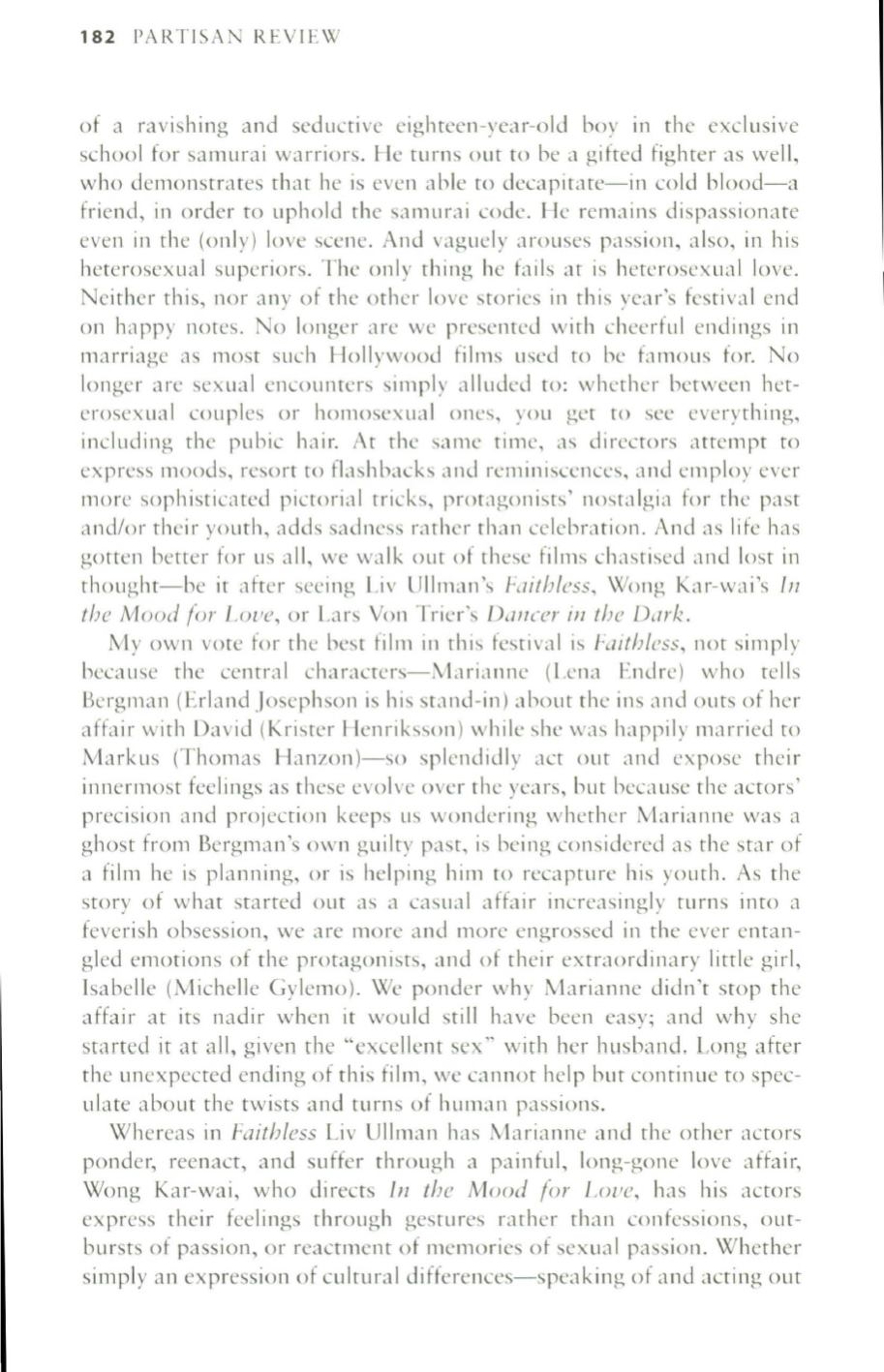
182
PARTISAN REVIEW
of a ravishing and scductivc eighteen-year-old boy in the cxclusive
school for samurai warriors. He turns out
to
be a gifted fightcr as well,
who dcmonstrates that he is even able to decapitate-in cold blood-a
friend, in order to uphold the samurai code. He remains dispassionate
evcn in the (only) love scene. And vaguely arouses passion, also, in his
heterosexua I superiors. The only th ing he fa i1s a t is heterosexua I love.
Neither this, nor any of the other love stories in this year's festival end
on happy notes. No longer are we presented with cheerful endings in
marriage as most such Hollywood films used to be famous for. No
longer are sexual encounters simply alluded to: whether between het–
erosexua I cou pies or homosexua lones, you get
to
see everythi ng,
including the pubic hair. At the same time, as directors attempt to
express moods, resort
to
flashbacks and reminiscences, and employ ever
more soph isticated pictoria I tricks, protagon ists' nosta Igia for the past
and/or their youth, adds sadness rather than celebration. And as life has
gotten bcttcr for us all, we walk out of thcse films chastised and lost in
thought-be it after sccing Liv Ullman's
Faithless,
Wong Kar-wai's
III
the Mood (or Loue,
or Lars Von Trier's
Dallcer ill the Dark.
My own votc for thc bcst film in this festival is
Faithless,
not simply
bccause thc central charactcrs-Marianne (L.ena Endre) who tells
Bcrgman (Erland Josephson is his stand-in) about the ins and outs of her
affair with David (Krister Hcnriksson) while she was happily married to
Markus (Thomas Hanzon)-so splendidly act out and expose their
innermost feelings as these cvolve over the years, but because thc actors'
precision and projection keeps
liS
wondering whether Marianne was a
ghost from Bergman's own guilty past, is being considered as thc star of
a film he is planning, or is hclping him
to
rccapture his youth. As the
story of what started out as a casual affair increasingly turns into a
fcvcrish obsession, we are more and more engrosscd in the evcr entan–
gled cmotions of the protagonists, and of their extraordinary little girl,
Isabelle (Michclle Gylcmo). We ponder why Marianne didn't stop the
affair at its nadir when it would still havc been easy; and why shc
startcd it at all, given the "exccllent sex" with her husband. Long after
the unexpected ending of this film, we cannot help but continue
to
spec–
ulate about the twists and turns of human passions.
Whereas in
Faithless
Liv Ullman has Marianne and the othcr actors
pondcr, recnact, and su Her th rough a pa in fu I, long-gone love a ffa ir,
Wong Kar-wai, who directs
III
the Mood (or LOl'e,
has his actors
exprcss their feelings through gestures rather than confessions, out–
bursts of passion, or reactmcnt of memories of sexual passion. Whether
simply an expression of cultural differences-speaking of and acting out


